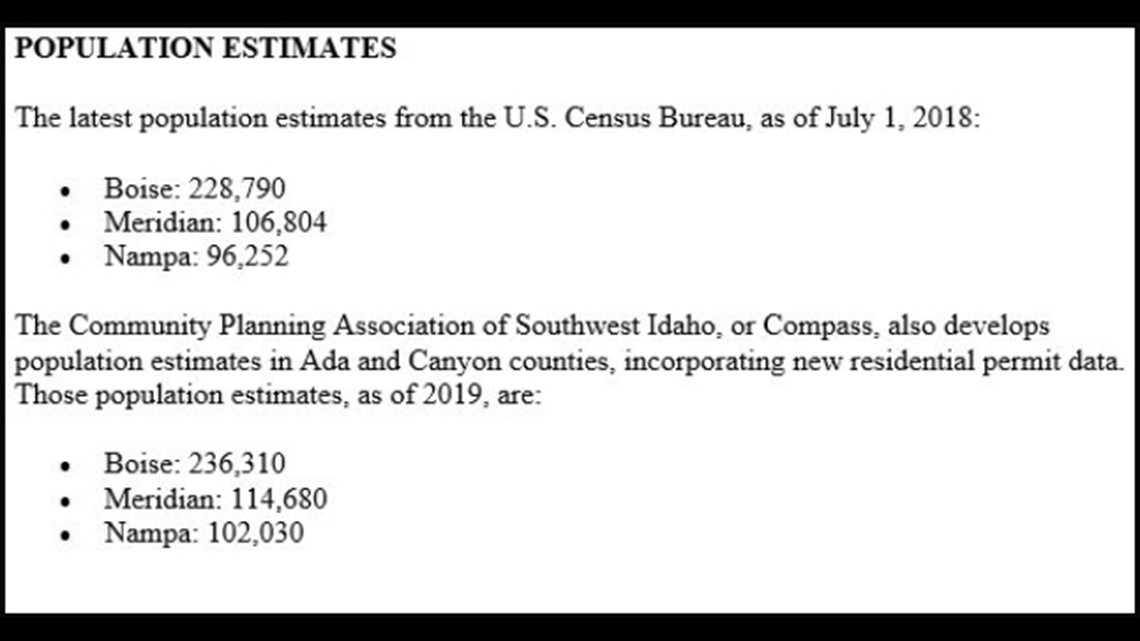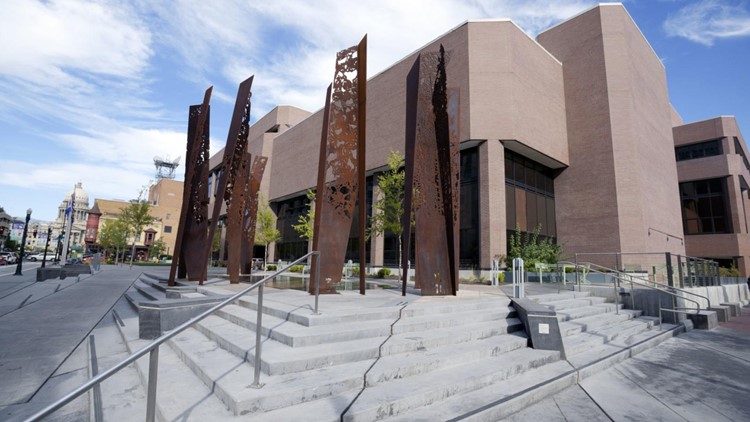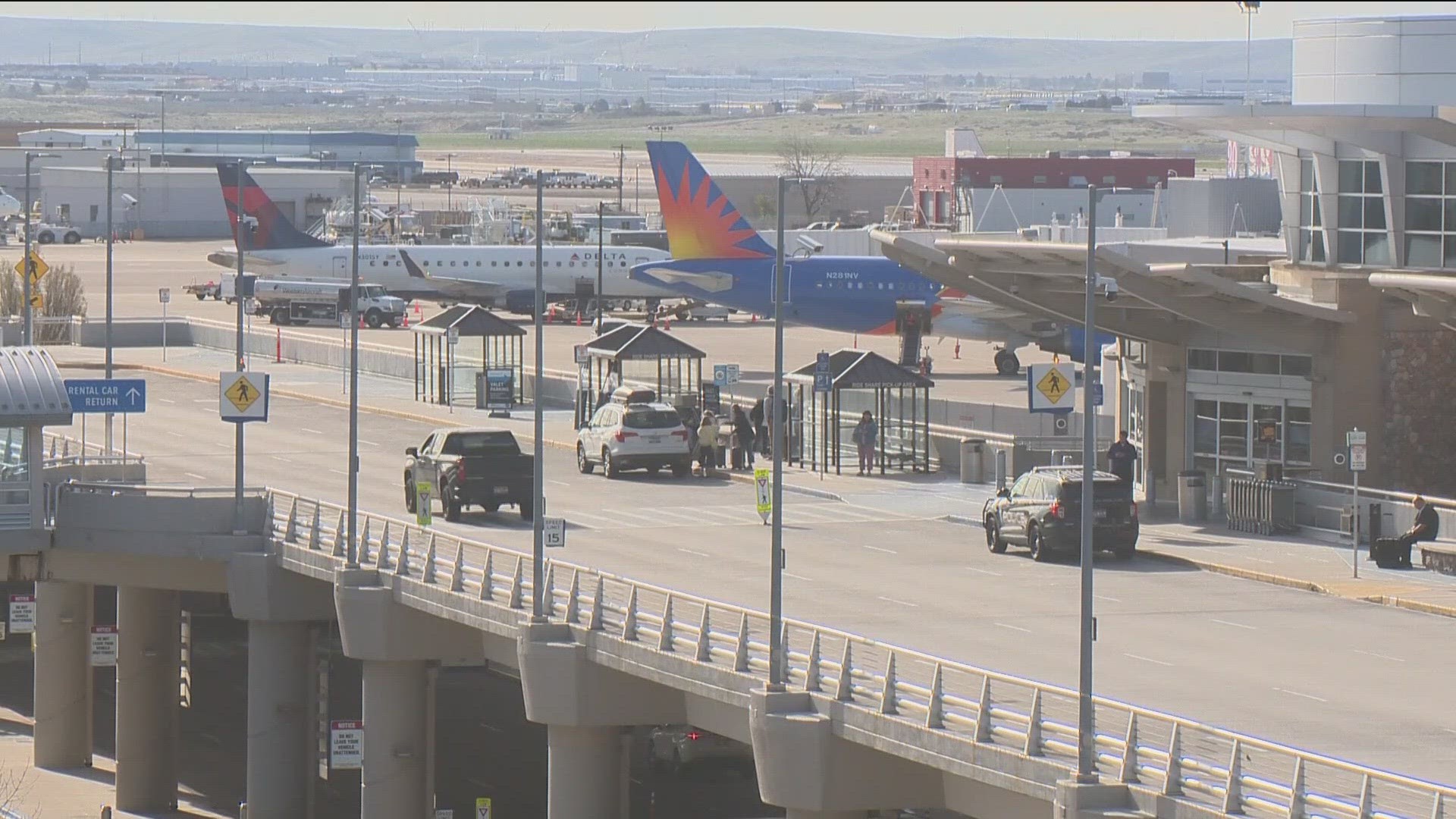BOISE, Idaho — Idaho lawmakers on Monday, on a party-line vote, sent the full House legislation to force the city of Boise to elect its city council members by geographic district, instead of citywide.
The Idaho Press reports the move came over objections from newly elected Boise City Councilman Patrick Bageant and from Rep. Brooke Green, D-Boise, a member of the House State Affairs Committee.
“This bill is to legislate Boise, and it’s not to legislate anyone else,” Green protested. “It is not our place.”
Rep. Joe Palmer, R-Meridian, who proposed the bill, told the committee, “I look at this as local control at the lowest level, which will be the voters themselves.”
He said all but one of Boise’s current city council members come from the same area of town. Current law allows cities to set up election-by-district systems on their own.
“They don’t seem to decide to do that once they’re in those seats,” Palmer said.
His bill would force any city with a population of more than 100,000, as of the last Census, to do so. Currently, only Boise meets that criteria, though Meridian is expected to as well, after the Census that will be launched this year. Nampa is also close to that threshold. In all three of these cities, city council members are elected at large by popular vote citywide; they can choose to run for any of the open seats.


Former state Rep. Branden Durst, D-Boise, told the committee, “I’ve asked this question for many years. It’s been demurred, because they don’t want to do that because that won’t serve their political interest.”
Karen Danley, who ran unsuccessfully for the Boise City Council last year, said, “The problem is it takes an outside source such as a lawsuit or this bill.”
Boise resident Dave Kangas told the committee, “You cannot expect a representative from the North End of Boise to understand the issues in the other end of town, it just doesn’t happen. … All the council is from the North End. Are they readily, easily going to give up that influence? No.”
Bageant told the committee, “Right now we haven’t had the opportunity to have that conversation in Boise. … Instead, we have an opportunity to have the conversation over here on one particular version of districts, one particular solution that’s being cast as a statewide law that only applies to us. I don’t think it’s the best way to get to the solution to the problem.”
Bageant noted that in the 2013 election, none of the newly elected Boise City Council members were from the North End. He tried to distribute handouts showing an analysis of the last election, in which he said Councilwoman Elaine Clegg won majorities in every neighborhood in the city, and said under the bill, five out of six Boise residents wouldn’t be allowed to vote for her. But committee Chairman Steven Harris, R-Meridian, wouldn’t let Bageant distribute his handout, saying it hadn’t been approved by the committee in advance.
“This will cost money,” Bageant warned. “I want to know as an official that the people in my community want this. They will have to pay for it.”
He added, “I’ve made a commitment — a citizen brings me an ordinance, I will put it to the council. I’m really not here to say this is a bad idea. I’m here to say let us do it first.”
Rep. John Gannon, D-Boise, moved to hold the bill, HB 413, for two weeks so the city of Boise could address the issue before the Legislature acted, but Rep. Brent Crane, R-Nampa, made a substitute motion to send it to the full House with a recommendation that it “do pass.”
“I think by moving this bill forward we continue to keep the pressure on the city of Boise,” he said.
Green argued against the motion. “When we start to legislate one community with one specific issue, we are creating a very unhealthy precedent,” she said.
House Assistant Majority Leader Jason Monks, R-Nampa, said, “I don’t think that this is necessarily regulating Boise alone, it regulates any city that’s over 100,000 population. … It’s not targeted at Boise, it’s targeted at any city that becomes that size.”
Palmer told the committee, “All of you represent 30,000 to 40,000 people. Can you imagine trying to represent 220,000 people?”
The committee’s minority Democrats voted “no,” but the bill passed on a voice vote with majority Republicans supporting it. To become law, the bill still would need passage in the full House and Senate and the governor’s signature.
Asked for her reaction, Boise Mayor Lauren McLean said in a statement, “I’ve long maintained that a city councilor should concern themselves with the business of an entire city, and can attest to the value in hearing about the bigger picture from all kinds of people, all over this city. I also understand that residents are seeking meaningful representation geographically, to have a designated advocate on city council. I’d support the City Council addressing this issue.”
Idaho Press reporter Margaret Carmel contributed to this report.
More from our partner Idaho Press: Ada County taps 17 people for Expo Idaho Citizens Advisory Committee
Watch more 'Growing Idaho':
See them all in our YouTube playlist:



